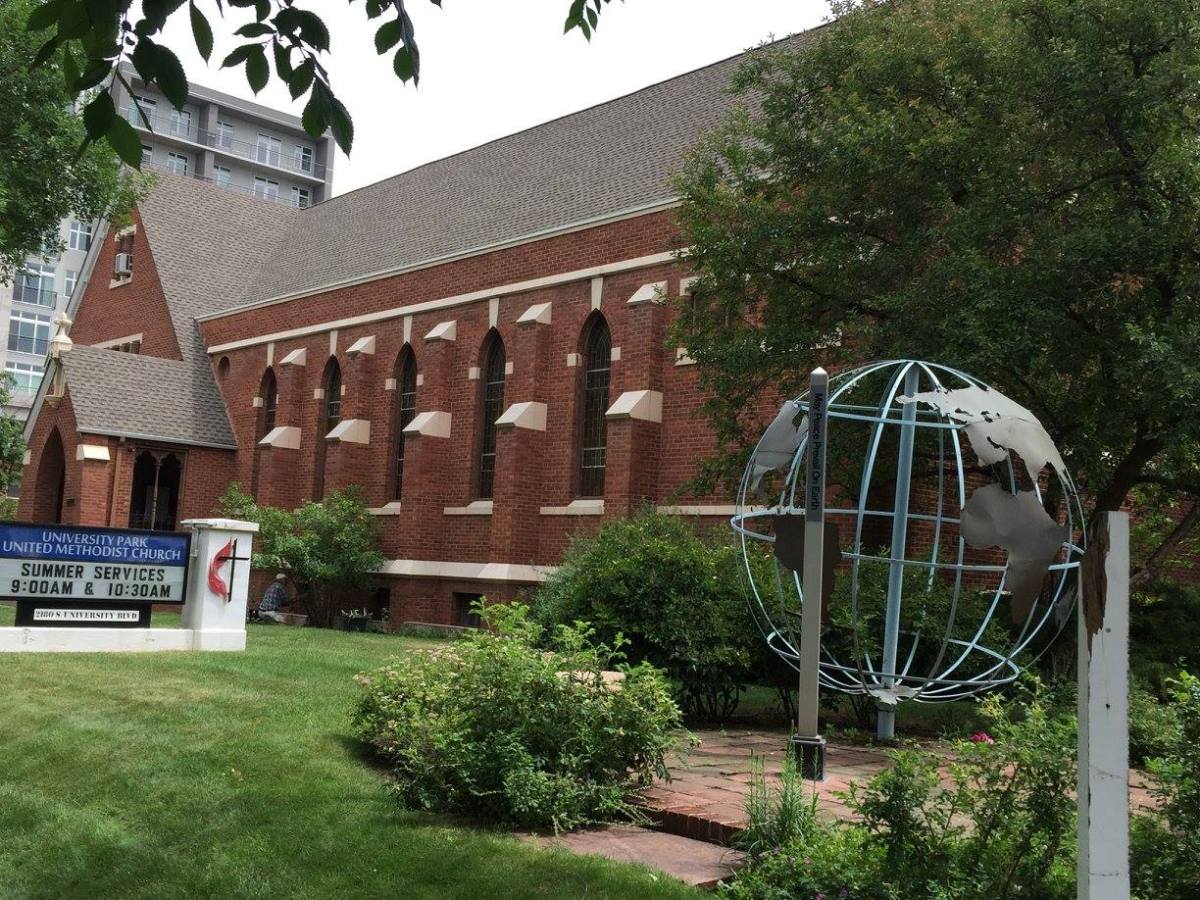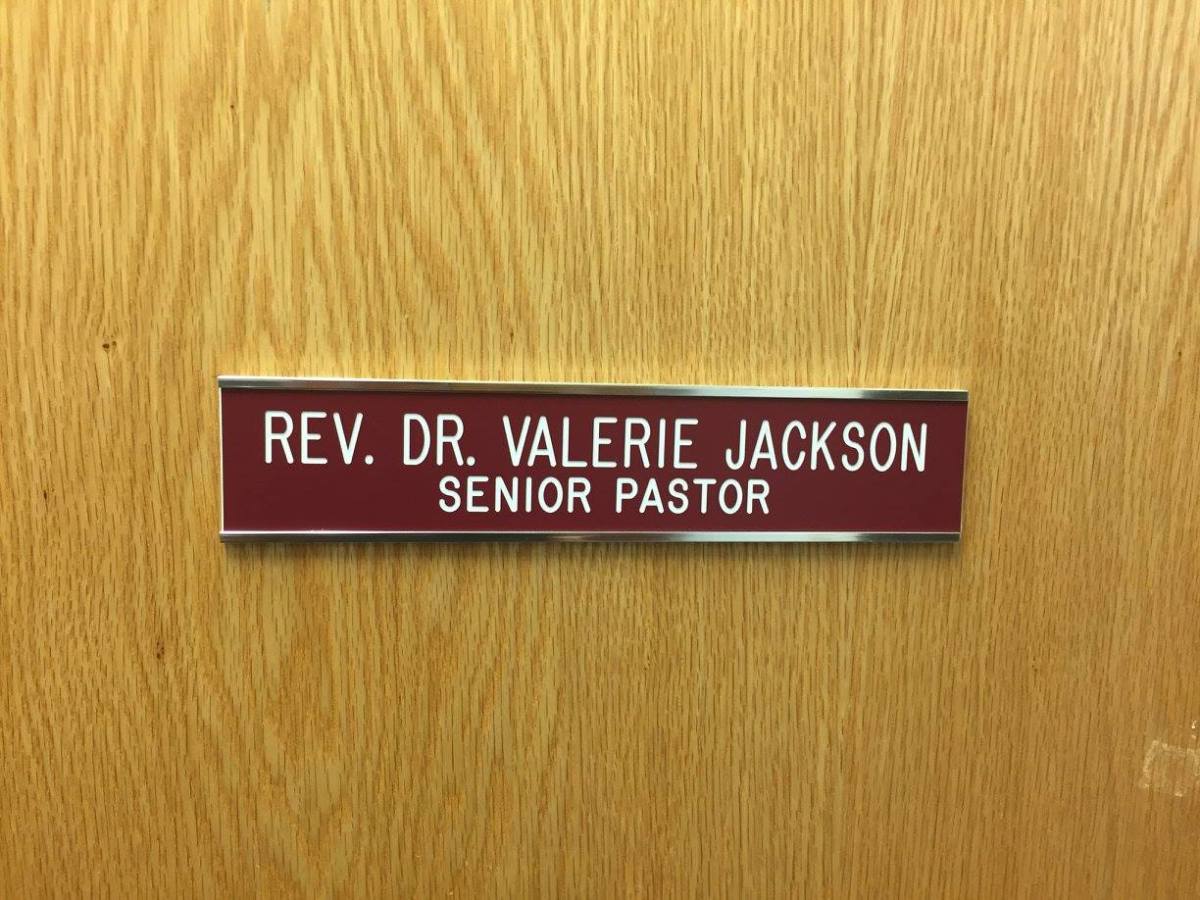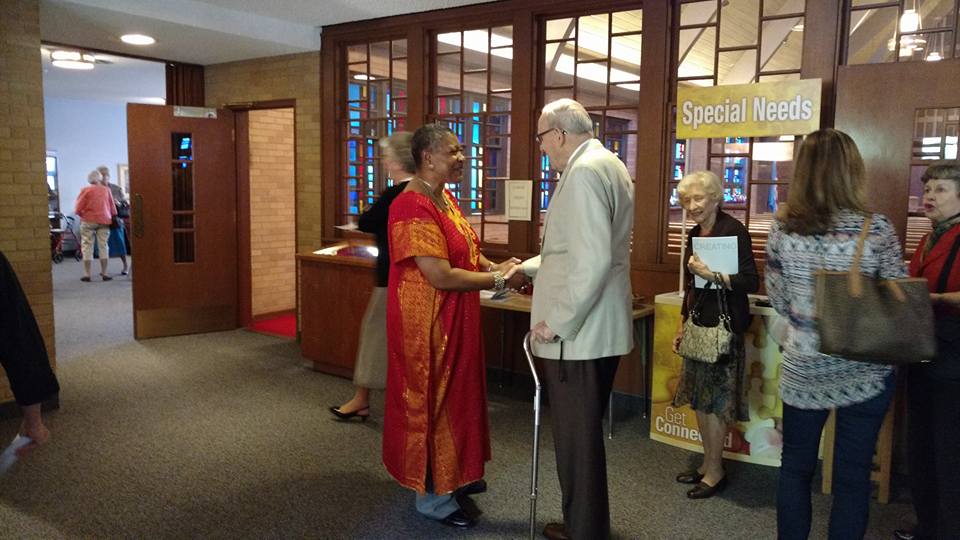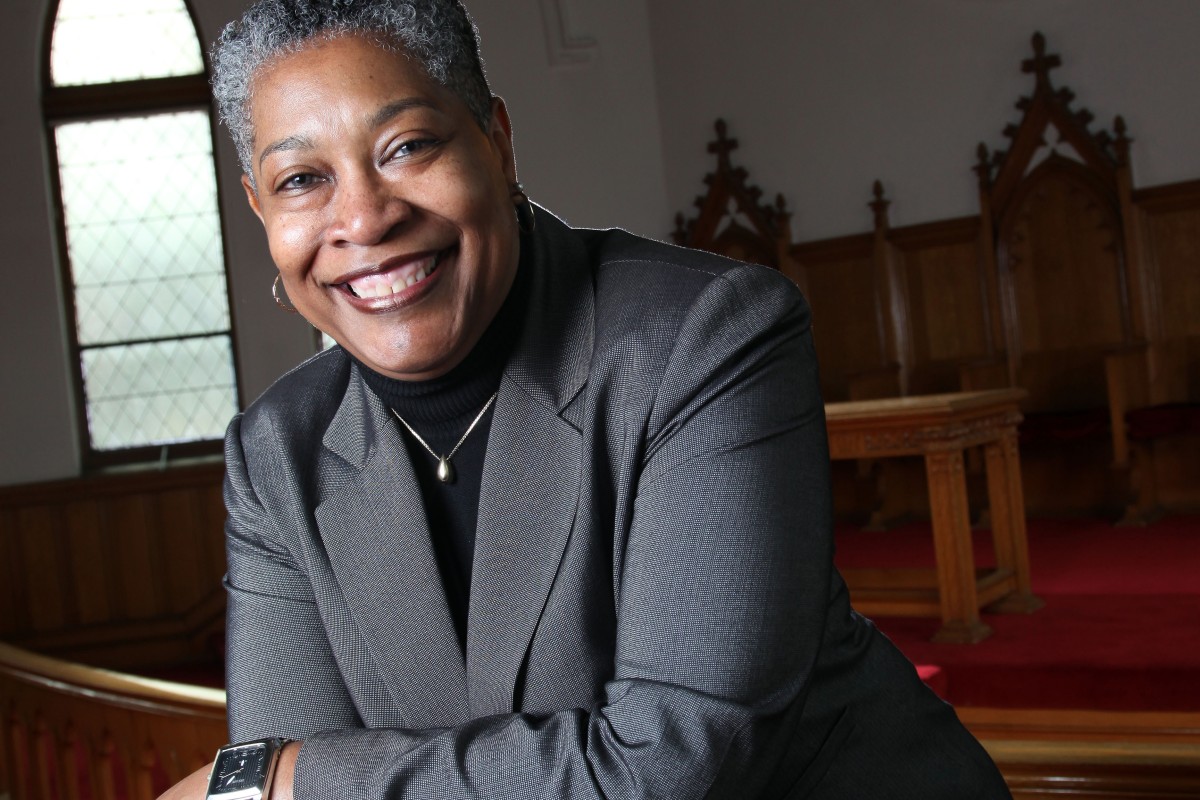When she was nine years old, Valerie Jackson began ministry as the Sunday School Secretary in a Baptist church in the small town of Mount Carmel, South Carolina. At this same young age, Jackson delivered Easter, Thanksgiving, and Christmas speeches. This progressed to being a member of the usher board and singing in the choir.
Born in Boston, Massachusetts, Jackson was raised by her mother for the early years of her life. She reflected on their situation:
But Boston wasn’t kind to single moms. If they discovered you had children, they would either not hire you or if they had already hired you, they would find ways to unhire you.
During the school year, Jackson was with her grandparents in South Carolina. During the summers and holidays, she was with her mom and stepdad.
It was only supposed to be temporary. It lasted until I graduated from high school.
I asked Jackson what made this arrangement a more permanent one.
[It was] my naiveté and thinking the world revolved around me and not realizing the sacrifice my mom was making. I was spoiled and a little self-centered. For seventeen years I was an only child.
I was ten when my mom married my stepdad. When my mom and stepdad got married, she could have me the whole time. But when you’re an only child, your friends are your world. I did not want to leave my friends. She allowed me to stay and I had no idea of the sacrifice until I was fully grown and married.
Although Jackson has been involved in ministry for most of her life, she describes her journey as having three pivotal paradigm shifts. Each of them involved death.
The first paradigm shift happened with the death of her grandfather.
My grandfather was a strong influence. I referred to him as my Uzziah [Isa 6:1]. I did not have my own relationship with God until after the death of my grandfather.
When he died, I was about 60 days away from graduating from undergrad. I didn’t want to finish. I was angry with God. Of course my mother had the power and influence to get me to finish.
Overall, I was a good girl. [I was an] obedient child. But I was angry with God for two years.
I came out of that anger just hungry to study. That’s when I began to attend Bible studies on my own. [I was] no longer being told. I was hungry.
There was no “burning bush” moment or anything like that. It was like a Forrest Gump moment where you do all this running and then you just stop. The anger just dissipated. The anger had run its course.
The second shift happened after going through a difficult marriage and a traumatic pregnancy that ended in the death of her infant daughter.
My family knew from the beginning that he was not a good choice. But who listens to family? It turned out that nothing about this man was what he said he was. He was a pathological liar.
Jackson’s husband at the time was frequently absent from home, for doctor’s appointments during the pregnancy, and for the emergency premature delivery of their baby.
The good thing that came out of it was that I had a little girl, Jacquelyn Noelle, April 16, 1989. She was born prematurely at 24 weeks. She lived 5 weeks from April 16th until May 20th.
The beauty of Jacquelyn Noelle is that she brought a nation together in prayer. She never spoke a word. She never left the hospital, but a nation, people everywhere, people I had never laid eyes on, prayed for her.
She set me back on a path to myself. I believe in all my heart that that is what her purpose was. Because when I was carrying her, I began to see my husband for who he was or was not.
Jackson took Jacquelyn Noelle to South Carolina to be buried next to her grandfather.
Journeying with her for five weeks, then laying her to rest gave me the strength and the tenacity I needed to say that’s enough of that.
After experiencing a profound grief that left her silent for a long period of time, Jackson moved to Augusta, Georgia to begin again. It was here that she found Beulah Grove Missionary Baptist Church where she entered pastoral counseling for two years with Rev. Dr. Sam Davis.
I finally got my voice back.
She not only got her voice back but it is here that she begins to describe a series of multiple calls on different levels.
The initial call came through my being in this certificate of theology program. It was an extension program of Interdenominational Theological Center (ITC). They had satellites throughout the state of Georgia.
I have always been hungry for learning so I registered for this certificate program just to learn more. It was not to answer a call.
It was a preaching class. I told the instructor (Rev. Christopher Johnson), ‘I will take the class but I don’t want to preach.’
Reverend Johnson said, ‘If you take the class, you will preach Miss Jackson.’
I preached. After preaching, Reverend Johnson asked me to stay after class. He said to me, ‘Miss Jackson, I would recommend that you seek God in prayer because God is trying to tell you something.’
I said something silly to him like, ‘I don’t think God would call me to preach, because I like television.’
Reverend Johnson’s response to me was, ‘I’m quite sure God knows that.’
On hindsight, this was a silly statement but I didn’t see watching television as a great thing and thought it would be a hindrance.
I did not go back to that class. It was five years before I stepped back into that certificate of theology program. It was not a part of my consciousness that I would be a preacher.
Jackson did perceive of herself as a leader but not a leader in the pulpit.
I had visions of standing in front of large masses of people. At the time, I was a Mary Kay consultant. I was on my way to my pink Cadillac. I thought the large masses of people were women I was calling to be entrepreneurs.
Finally, in December of 1995, I had a different dream. I no longer was standing before masses of people. It was a dream of this figure. I knew it was Jesus. It was not the picture of a full-bodied man. It was a picture of Jesus calling me to answer this call.
It was such a powerful image. I woke up in tears. I couldn’t wait to call my pastor at the time. I said, ‘I need to meet today. This can’t wait.’
Now this is a pastor whose calendar was always full. [But] he told me to come in.
He said, ‘Jack.’ (He called me ‘Jack.’)
‘I was waiting for you to figure it out.’
Of course, I was in a theological tradition and faith paradigm at the time that said whoever your pastor is at the time will know before you do. Whatever calling is on your life, your pastor will know before you do.
After this meeting, Jackson immediately enrolled in the same certificate program, graduated from it and then entered a joint Masters of Christian Education and Masters of Divinity degree program in 2000.
Think about that. It was five years before I entered the Masters program. Even though it was clear that I was called to preach, my consciousness was only expanded a bit. I got those two degrees and I knew that I would be the Director of Christian Education for the rest of my life.
Jackson was a member of the National Baptist Convention denomination at that time. Many churches in this denomination are conservative in that they observe clearly defined boundaries with respect to the roles of men and women. In this denomination, it was surprising that her pastor was accepting of her call to preach. It was groundbreaking that he was going to allow her to be in a leadership role. What is not surprising, is the other roles that he never planned for her to fill.
My pastor was okay with me being called to preach. I was the first woman licensed to preach in that church. He immediately made me Director of Christian Education, which in and of itself was historical.
I had no idea that my positioning was situated in misogyny. It was in alignment with the culture I had been in since birth. The roles of women and men. It was normal that the deacons were men. Trustees were men. All of that was normal. I had not been exposed, at the time, to too many other denominations . . . definitely not many other faiths. So there was no reason for me to think this was wrong.
I was completely okay with that at the time because that was how I was trained. But then ITC began to open my mind and taught me to read the Bible with fresh eyes. ITC began to enlighten me about the history of patriarchy and what it looked like for women throughout the years. When I returned [from seminary], I was no longer the same person. I became a misfit.
I was often in trouble. I taught one of the prime time Bible studies. It was a big deal. Things like this could often keep me from seeing what I was in because I was given opportunities that no other woman had been given.
Now I was constantly being in trouble for what I was teaching.
Her pedagogy describing God as dual-gendered, based on Genesis 1:26-30, caused her to be called into the pastor’s office one final time.
The pastor said, ‘Jack, in order for you to stay in this position to teach in that class, you have to agree that God is male.’
I said, ‘Well, pastor Davis, I do agree that Jesus is a male.’
I started bold but when it became clear that my job was on the line . . . my salary and benefits and community were all on the line . . . then, I gave in.
After surrendering to him, this is when I literally could feel a foot on my throat. I could no longer breathe. That was the beginning of the end of my tenure at Beulah Grove Baptist Church. Approximately one year later, I put in my letter of resignation. That was in March of 2008.
Jackson describes this as divine timing because in April of 2008, she receive a call that her mother had been taken to the hospital. She would not have been free to go and be with her mother if she had not resigned. Her mother died three short weeks later. This was the third paradigm shift that catapulted Jackson into unexpected places in ministry.
Jackson left Georgia and the Baptist church, then started the Doctor of Ministry Program at the Iliff School of Theology.

That last call brought me to Denver which brought me to the United Methodist Church and which now ends up at University Park United Methodist Church.
Oh, it blows my mind. This is unbelievable to me. And I am so grateful. Because there were so many moments between 2008 and now when my prayer was ‘Oh God, please don’t let me be put to shame because I believe I am hearing you and it is my greatest desire to honor you and to go where you would have me to go and to say what you would have me to say, and do what you want me to do because I am committed to that.’
I intentionally didn’t have more children because I wanted to give that total surrender. I didn’t have the courage to speak it, but my hope then and my hope now is that history will tell those coming behind me that you don’t have to take it. Go get your freedom. Go live in a liberated space. Go claim your life and life to the fullest. That’s what I hope history will tell them.
God will be with you. God will walk with you. God will bless you. God will not forsake and God will not let you be put to shame.

I asked Jackson how she is feeling about the historicity of her appointment as the first woman and the first African-American senior pastor to University Park United Methodist Church, Denver, Colorado.
I am grateful to have my gifts, graces and calling honored, utilized and celebrated. Particularly coming from a background where that was not always the case, simply because of my gender. Also, coming from an indoctrination that said I needed to put brakes on sometimes so that male counterparts could shine greatly. I am so grateful that it’s not being held against me to be a woman.
I am grateful to be in a space where, for the most part, whether I am good or bad, it seems that I’m still loved. Whether I am at my best or whether I am making mistakes, I’m still valued.
Even though it has cost me a lot, I am grateful to be one who is called to go. I am grateful to be one who is called to be strong and courageous and to disrupt consciousness. That is truly one of my callings . . . to disrupt consciousness.
It’s a paradox to me because I always saw myself as a people-pleaser. I am grateful to be that person. I am grateful to be in partnership with Jesus, God and the Holy Spirit to move people forward in becoming and in building of the beloved community.

I asked Jackson what leading a predominately white congregation looks like for her.
I’m still figuring that out being that I am just over the first 90 days of this appointment. Yet I can feel in my spirit that me and this congregation will be called to stretch ourselves and to lead our community . . . this community in, again, disrupting consciousness and teaching this community how to have the hard conversations and to truly build intercultural relationships.
It’s not my first time leading a congregation within a culture that is different than mine but it is my first time leading a faith community within a culture that is different than mine and we are on the same wavelength theologically. So there is synergy here– me and this church feel called to disrupt consciousness.
